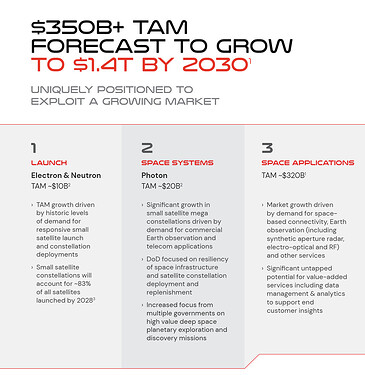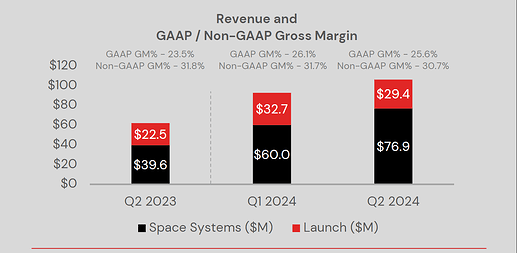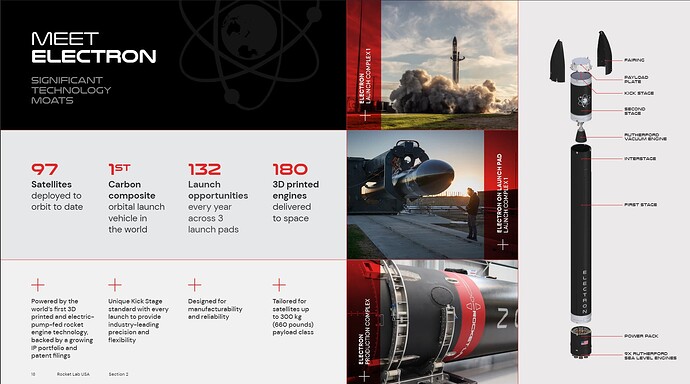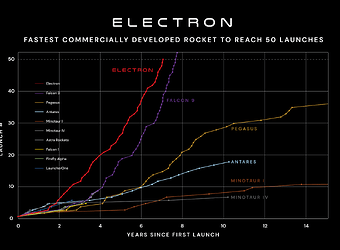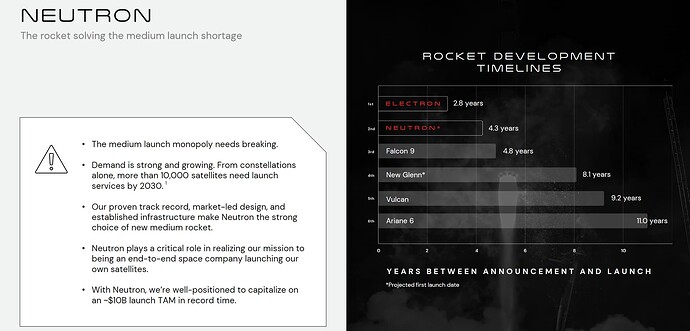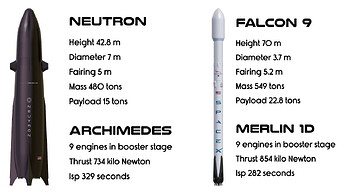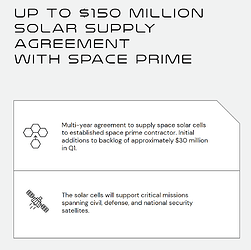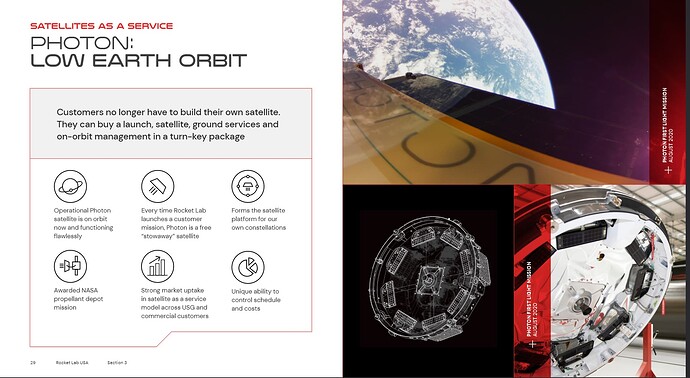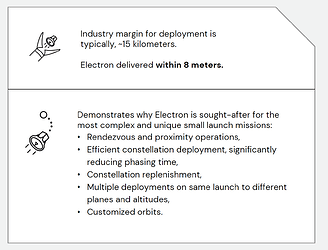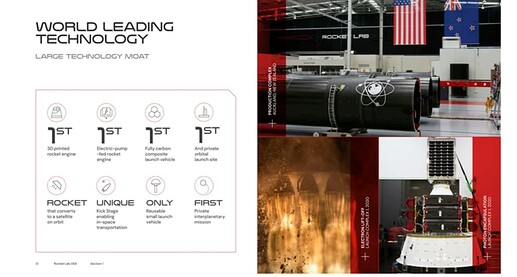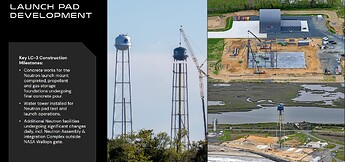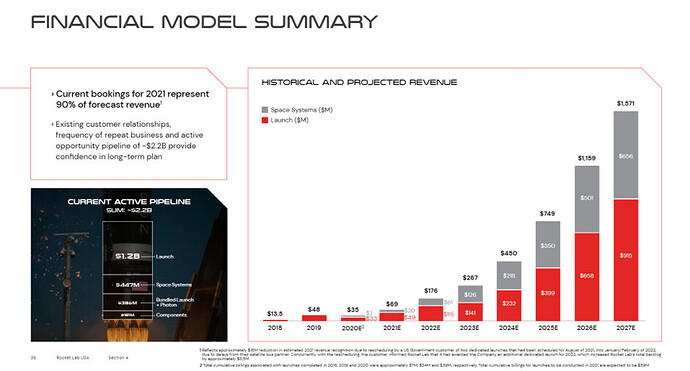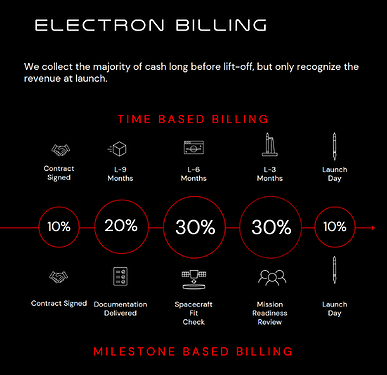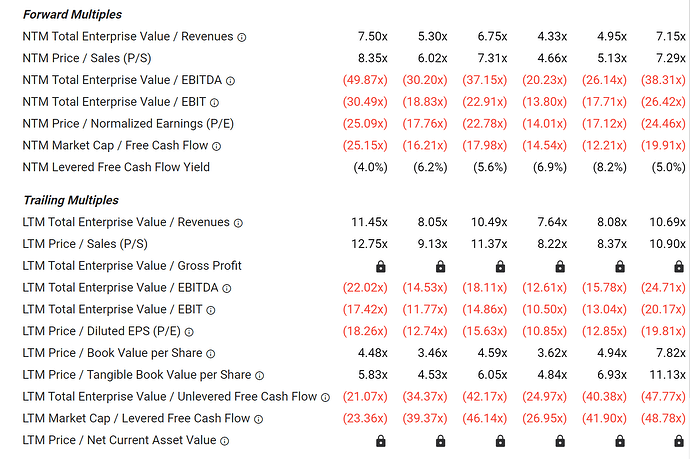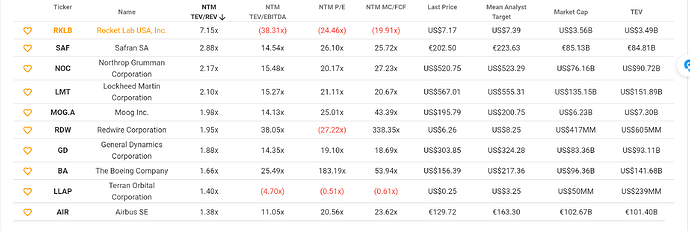Rocket Lab USA, Inc. is a publicly traded aerospace company established in 2006 by engineer Peter Beck. It offers launch services for small satellites using its lightweight Electron rockets. Founded in New Zealand in 2006, Rocket Lab has successfully launched numerous satellites into orbit and has expanded its operations to include spacecraft manufacturing, satellite components, and ground software.
Moreover, it builds rockets that effectively carry these satellites for various purposes like communication, weather monitoring, and scientific research. Since the get-go, Rocket Labs sought to solidify its positioning in its niche by evolving into an end-to-end space company. The company is also developing larger rockets, such as the Neutron, and has plans to launch a mission to Venus.
Peter Beck: A Self-Taught Rocket Scientist
Just as Elon Musk’s vision and leadership have shaped Tesla, Peter Beck’s unique perspective and entrepreneurial spirit have been instrumental in defining Rocket Lab’s identity and driving its innovative approach to space exploration. Lets have a look at his personal journey:
Growing up in Invercargill, New Zealand, Beck’s passion for space was ignited by childhood stargazing. He spent his youth experimenting with rockets and building contraptions, showcasing his early engineering skills. Despite not attending university, Beck pursued his dream by working in various engineering roles and gaining hands-on experience.
As a teenager, Beck had fun turbocharging an old Mini and launching water rockets. While working as a tool-and-die making apprentice, he experimented with rockets and propellants, building a rocket bike, a rocket-powered scooter, and a jetpack. Later, Beck worked in the product design department, and then moved to another firm where he gained experience working in composites, smart materials, and superconductors, and bought a cruise missile engine from the United States.

Moving to United States:
Rocket Lab moved from New Zealand to the United States primarily to access the larger American market, secure government contracts, and attract more investment. The U.S. government provided regulatory support by offering a favorable environment for the aerospace industry, including streamlined licensing processes and access to government facilities. This support helped Rocket Lab establish operations, conduct research and development, and ultimately expand its business. Additionally, it benefited from tailwinds due to government support as space was a sector of national importance. Rocket Lab has been awarded a preliminary agreement for up to $23.9 million in funding under the CHIPS and Science Act.
Rocket Lab’s Road to IPO:
The IPO aimed to raise significant capital to fund the development of the Neutron rocket, a larger and more powerful launch vehicle. To expedite the process and reduce the risks associated with a traditional IPO, Rocket Lab opted for a merger with a Special Purpose Acquisition Company (SPAC) called Vector Acquisition Corporation. This approach allowed the company to go public more quickly and with less regulatory scrutiny.
So how big is the space economy:
Source: Rocket Labs DRHP
Rocket Lab currently generates 70.60% of its sales from the Space Systems segment and the remaining 29.40% from its Launch Services division. With an endeavor to provide end-to-end space solutions to its customers.
Lets dive deeper into these business segments:
Launch Services:
Rocket Lab specializes in launching small satellites into various orbits, including low Earth orbit (LEO), polar orbits, and even deep space destinations. Currently their primary launch vehicle is Electron, a reliable and efficient rocket designed for frequent launches. Electron can accommodate payloads up to 300 kg, making it suitable for a wide range of small satellite applications. Rocket Lab utilizes advanced technologies like 3D printing and electric turbo-pump engines, providing competitive advantages in terms of efficiency and cost-effectiveness.
The company’s control over the entire launch process, from design to manufacturing, allows for streamlined operations and faster turnaround times. As of May 2024, Rocket Lab had attempted 47 launches, with 43 being successful thus providing high reliability to its customers. Rocket Lab aims for a high launch cadence, launching multiple times per year, thus it actually solves a very critical problem of its customers by reducing the lengthy wait times for launch and provides flexibility to change their launch schedules.
New launch Vehicle:
Neutron is Rocket Lab’s upcoming reusable launch vehicle designed to significantly increase payload capacity compared to the Electron. This medium-lift rocket is intended for both commercial and government payloads, including those destined for constellations and potential human spaceflight missions.
Rocket Lab aims to benefit from the experience and lessons learned from the Electron program, accelerating development and reducing risks. Neutron can be configured for various mission types, including LEO launches, constellation deployments, and even human spaceflight. Neutron offers a significantly higher payload capacity, allowing it to launch larger satellites and spacecraft. Neutron can launch from multiple locations, including the Mid-Atlantic Regional Spaceport in Virginia.
Space Systems:
Rocket Lab’s Space Systems business provides a comprehensive range of spacecraft components, design services, and spacecraft-as-a-service solutions for both government and commercial customers. This segment complements the company’s launch services business by offering a more integrated approach to space missions.
Rocket Lab manufactures a variety of critical components for spacecraft, including:
-
Composite structures
-
Reaction wheels
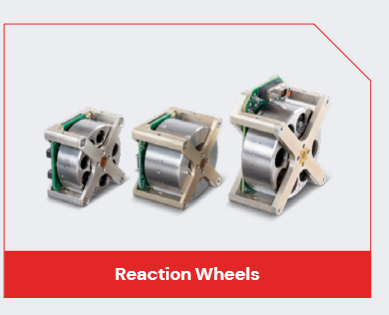
-
Star trackers
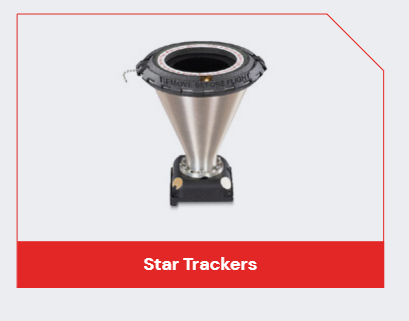
Source: Rocket Lab DRHP -
Radios
-
Separation systems
-
Solar solutions
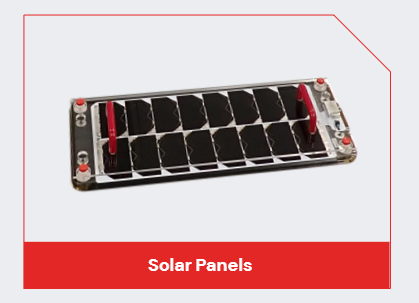
Source: Rocket Lab AR
- High voltage space grade battery
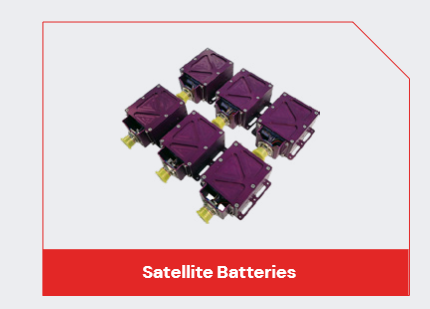
Rocket Lab’s Photon Spacecraft: A Versatile Platform
Photon is a versatile spacecraft platform developed by Rocket Lab that offers a range of capabilities for various missions. It can be configured for low Earth orbit, medium Earth orbit, geosynchronous orbit, and even interplanetary destinations. It provides end-to-end solutions thus benefitting its customers in streamlined launch, manufacturing ground services and mission operations.
Source: Rocket Labs AR
So how does Rocket labs expands its capabilities and market reach?
Rocket Lab’s Acquisitions:
Sinclair Interplanetary: This acquisition in 2020 brought Rocket Lab expertise in spacecraft components manufacturing. Sinclair’s technology has been integrated into the Photon spacecraft platform, enhancing its capabilities.
Planetary Systems Corporation (PSC): Acquired in 2021, PSC specializes in satellite separation systems. This acquisition strengthened Rocket Lab’s ability to provide end-to-end solutions for spacecraft deployment.
SolAero Holdings: Acquired in 2022, SolAero is a leading supplier of space solar power products. This acquisition enhanced Rocket Lab’s capabilities in providing power solutions for spacecraft.
Advanced Solutions: Acquired in 2021, Advanced Solutions is an aerospace software company. This acquisition strengthened Rocket Lab’s software development capabilities, supporting the development of spacecraft control systems and ground operations software.
Varda Space: While not a full acquisition, Rocket Lab purchased several key technologies and assets from Varda Space, a company focused on in-space manufacturing. This move is seen as part of Rocket Lab’s future plans to explore in-space manufacturing and research applications.
Source: Rocket Labs AR
By strategically acquiring these companies, Rocket Lab has positioned itself as a more comprehensive and competitive player in the space industry, thus the business of Rocket Labs is transitioning from primarily a launch services company to an end to end space company.
“Rocket lab is not about a rocket or a satellite is about combining those things together to go after a much bigger opportunity, the rocket is the enabler not the end point.” - Peter Beck
Source: Rocket Labs Concall
Rocket Labs have been able to acquire businesses at lucrative launches due to consolidation in the industry, their IPO in Aug 2021 comprised a fresh issue of $765mn which provided them with cash reserves to fund acquisitions. Subsequently due to fed rate hikes and funding winter many space startups shut shop and they were able to acquire many businesses at lucrative valuations.
Source: Annual Laguna Conference 2024, Sep-11-2024
Current Cash Reserves:
Currently they have sufficient cash reserves to fund R&D development expenses of neutron and also for funding new acquisitions.
Competitive Strengths:
- Flight Heritage and First-Mover Advantage:
- Proven Track Record: With over 40 successful orbital missions and 172 spacecraft deployed, Rocket Lab has demonstrated its reliability and expertise in the small launch vehicle market.
- Market Leadership: Electron has solidified its position as one of the most frequently launched orbital rockets in the United States.
- Competitive Advantage: This extensive flight heritage positions Rocket Lab ahead of potential competitors, allowing it to secure higher-volume and higher-value missions.
- Unique Technologies:
- Carbon Composite Structures: Rocket Lab’s use of carbon composite materials reduces the mass of its launch vehicles, improving performance and efficiency.
- Electric Turbo-Pump Engines: The company’s innovative electric turbo-pump engines offer high performance and reduced complexity compared to traditional gas generator cycles.
- 3D Printing: Rocket Lab’s expertise in 3D printing enables rapid prototyping and testing, accelerating time-to-market for new flight hardware.
- Kick Stage: The unique kick stage provides flexibility in spacecraft deployment and can even be used as a fully-featured spacecraft.
- Deep Vertical Integration:
- In-House Capabilities: Rocket Lab’s control over the entire design, manufacturing, and launch process allows for streamlined operations and reduced costs.
- Global Presence: The company’s engineering and manufacturing teams are located across the United States, New Zealand, and Canada, providing a global footprint.
- Integrated Design and Test Capabilities:
- Proprietary Infrastructure: Rocket Lab’s own propulsion test infrastructure enables efficient testing and validation of its technologies.
- Accelerated Development: This capability contributes to faster time-to-market and improved product quality.
- Multiple Launch Complexes:
-
Increased Capacity: Rocket Lab operates two launch complexes, providing flexibility and increasing its launch capacity.
-
Reduced Reliance on Third Parties: Owning its launch complexes eliminates the need to compete for limited slots on shared launch pads.
- End-to-End Space Solutions:
- Comprehensive Offerings: Rocket Lab provides a complete range of services, from launch to spacecraft manufacturing and on-orbit management.
- Streamlined Access to Space: Customers can benefit from a single-source provider, simplifying the mission development process.
Competition:
Source: Rocket Labs AR
- Established Launch Vehicle Providers:
- Northrop Grumman: Known for its Pegasus air-launched rocket, Northrop Grumman is a significant player in the small satellite launch market.
- SpaceX: A dominant force in the space industry, SpaceX offers a wide range of launch vehicles, including the Falcon 9 and Falcon Heavy. While primarily focused on larger payloads, SpaceX’s entry into the small satellite market could pose a threat.
- United Launch Alliance (ULA): A joint venture between Lockheed Martin and Boeing, ULA is a major player in the U.S. launch market. While primarily focused on larger payloads, ULA has also entered the small satellite market.
- Firefly Aerospace: A relatively new entrant, Firefly Aerospace is developing the Firefly Alpha launch vehicle, targeting small satellites.
- ABL Space Systems: Another emerging player, ABL Space Systems is developing the RS1 launch vehicle for small satellite missions.
- International Launch Providers: Established Russian, Indian, Chinese, European, and Japanese launch providers also compete in the global market.
- Emerging Launch Vehicle Providers:
Several companies are developing new launch vehicles to compete in the small satellite market. These include:
- Relativity Space: Known for its 3D-printed rockets, Relativity Space is aiming to disrupt the industry with its Terran 1 and Terran R launch vehicles.
- Virgin Orbit: Virgin Orbit offers air-launched launch services, providing an alternative to traditional ground-based launches.
- Other Emerging Players: There are several other companies developing small launch vehicles, such as Astra Space, Vector Launch, and Rocket Lab’s own Neutron launch vehicle.
- Spacecraft Solutions Providers:
Companies that offer spacecraft design, manufacturing, and integration services can compete with Rocket Lab’s Space Systems business. Examples include:
- Airbus: A major aerospace company offering a wide range of spacecraft solutions.
- Lockheed Martin: A leading aerospace and defense company with extensive experience in spacecraft development.
- Boeing: Another major aerospace company involved in spacecraft manufacturing and integration.
- Maxar Technology: A leading provider of Earth observation and space infrastructure solutions.
- Spacecraft Components Providers:
Companies specializing in individual spacecraft components can also compete with Rocket Lab. Examples include:
- Ball Aerospace: A leading provider of aerospace technology and solutions.
- Raytheon: A major defense contractor offering a range of aerospace products and services.
- Collins Aerospace: A leading supplier of aerospace systems and components.
Currently they are competing with Elon Musk’s SpaceX and also Jeff Bezos’ Blue Origin. Peter Beck is the only non billionaire has to compete with world’s top 2 richest person, In an interview Peter Beck mentioned "We at Rocket Lab have no money, we can’t outspend our competitors so we have to outthink them. "
Walking the talk:
Source: Rocket labs DRHP
During their IPO in Aug 2021 they had projected their revenue from launch services, Electron to be $141mn in 2023 and $232mn in 2024, so considering revenue per launch of $8mn, they were expecting 17-18 launches in 2023, which they later guided for 15 but instead what they achieved was 10, subsequently in 2024 they had projected for 29 launches, which they later guided to be 22, but currently 17 seems feasible.
Source:Q2FY24 Concall
Although we should take projections in IPO with a pinch of salt, it shows that projecting their future numbers based on guidance can be futile.
Key Risks:
Relying on guidance:
The risk of continued R&D without adequate funding:
Risk of B2G contracts: Top 5 customers contribute 46% of revenues
Source: Rocket Labs Concall
Risk of acquisitions:
Source: Rocket Labs AR
Valuations:
Looking at P&L of Rocket Labs can be futile as revenue is recognized only at launch, whereas only 10% amount is due and rest 90% is collected at various stages before launch, thus making it a negative working capital business.
Source: Rocket Labs Concall
Source: Rocket Labs Inv Presentation
A key metric to track is their GM which are currently in the low 30s and they plan to increase it to 45-50% in the near term with increased launches as they are sitting on Operating Leverage due to high fixed costs in their business. Also once its commercializes neutron in mid 2025 it plans to earn 50% GM on it too. Currently they are incurring R&D expenses of Neutron which once commercialized should make them cash flow positive, considering they do not have plans to build a larger rocket than Neutron.
Currently they have around $1.07bn in order backlogs so an important metric is to track is the speed of execution.
Currently mcap of Rocket Labs is around $3.66bn and it trades at a very high P/S if we compare it with its peers.
But I think its not a like for like comparison as commercialization of Neutron in the near term will lead to lesser R&D expenses in the near term and Neutron being a lot expensive will have higher Gross income than Electron, with increased Electron launches we can see increase in gross income as well, also this business is full of optionalities with various various acquisitions. It is a fully integrated space company, with all its acquisitions in a very nascent stage.
Currently SpaceX(a private company) was valued at $210bn in a secondary sale transaction with a projected revenue of $13.3bn in FY2024, implying a P/S of around 16.
Source: Predicting SpaceX’s 2024 Revenue - Payload).
I feel this is a company driven by Peter Beck and a lot depends on his ability to outthink his competitors, a bet on Rocket Labs is essentially a bet on Peter Beck as its transitioning from a startup to an established business, so its revenues will be lumpy and thus projecting future revenue can be futile as space as a domain is still evolving, thus its share price is also going to be very volatile.
Would love an expert opinion on valuations of this company.
Disclosure: No positions



